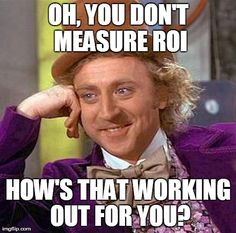 When you land a job interview, you research the company’s website to see how you’re a good fit for them. You make note of the prospect’s history and accomplishments, prepping yourself to acknowledge the company’s good qualities and figuring out how you’ll sell yourself as a positive contribution to the team in your interview.
When you land a job interview, you research the company’s website to see how you’re a good fit for them. You make note of the prospect’s history and accomplishments, prepping yourself to acknowledge the company’s good qualities and figuring out how you’ll sell yourself as a positive contribution to the team in your interview.
When you land the job, however, you need to do even more research to make sure the company is a good fit for you.
In the hype of receiving a job offer, you might overlook whether it is a good cultural fit. You’re so excited to be hired that you overlook the fact that you’re going to be spending 40 hours a week at a new building under new supervision with new colleagues. These things, you think, will work out just fine.
Why not scope out the environment ahead of time? Save yourself some stress by assessing before you take the job whether this is really the right move for you. The job may sound great from the job description and what you’ve heard in your interview, but clashing personalities or work styles can make you miserable.
First, be true to yourself about how you operate and learn best at work. Do you work better in a group or individually? Are you okay with doing the same tasks every day or do you prefer a job where each day brings about something different? Think about deadlines, short-term and long-term projects, and, of course, what kinds of relationships you want to have with your colleagues. Are they people you can relate to and who will help you thrive at your job?
After you’ve established what you need most in a work environment, use the following five methods to get a good feel for the company before accepting the position:
- Go Beyond the Interviewers
Talk to as many people who work there as you can — the receptionist, the janitor, security or any employees you may pass on your way through the building. While you want to ask questions to those who interview you, don’t stop there. Getting opinions from a variety of people will give you more insight into the company than you would get if you only went by the opinions of those who want you to accept the position.
Ask questions that are vital to what your work life will be like. What do people like and dislike about working there? How late are they usually at the office? What are some things they were surprised to learn about working there? How often do people move around in the company or get promoted?
- Turn to the Customers
In your research, determine what the company promises to provide to its customers. Study up on the company’s unique selling proposition or brand promise. Does this align with your values? Do you believe in the value of what the company offers its customers?
Read customer reviews and find out whether the company meets its promise. You likely won’t be happy working for a company that’s known for offering a terrible product or service.
- Job Shadow an Employee in a Similar Position
Ask your interviewer for the chance to watch another person in your position for a day. Job shadowing gives you a better look at what you’ll be doing on a day-to-day basis. First-hand experience allows you to make a better-informed decision as to whether you’ll enjoy this type of work.
Take advantage of sitting with another employee for a few hours by asking him or her detailed questions about the job.
- Creep on the Company’s Facebook Page
Go beyond the company’s website, where everything is neat and tidy, and check out the rest of their online presence. What do they share on Facebook and Twitter? What are people saying about them and how do they interact with the public?
You might not get the value of face-to-face communication with employees, but you can get a good feel for the company by the posts and photos they share. Use LinkedIn to find current or past employees and reach out to them. What do they have to say about the company? Use your judgment when reading reviews or talking to past employees.
- Assess Your Interview Process
You can tell a lot about a company just by how the management treats your interview process. Whether they rescheduled multiple times or met you at nine a.m. on the dot, take note of how professional or smooth the process was. Did the interviewers answer your questions directly or skirt around an ugly truth?
The way your interviewers behave is indicative of how they run the day-to-day business. Just as they examine you and your resume, you should in turn be picking up on their manners and body language.
While you may be eager and perhaps even desperate to get out of your old job and start somewhere new, you don’t want to jump at your first opportunity without analyzing the job from every angle. Don’t get your hopes up just to be let down a few short months later. Do your research and determine whether the job is the best cultural fit for you.
Business & Finance Articles on Business 2 Community(23)







